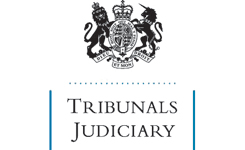|
Notes:
|
Reported as [2010] AACR 34
Mental health – detention under the Mental Health Act – patient with personality disorder – whether appropriate medical treatment available
In 2003, the patient was sentenced to imprisonment for five years for offences involving violence. In July 2006, he was transferred to Rampton Hospital under section 47 of the Mental Health Act 1983. He was also subject, by virtue of section 49, to the special restrictions under section 41, with the result that he was detained in hospital at a time when he would have been released from prison. He applied to the Mental Health Review Tribunal, which decided that he should not be discharged. In November 2007, he applied for his detention to be considered again by the tribunal. The case was heard in February 2009, by which time the mental health jurisdiction had been transferred to the Health, Education and Social Care Chamber of the First-tier Tribunal. The tribunal decided that he was not to be discharged, finding that he had a psychopathic personality disorder and that he was at risk of violent re-offending. On the question of treatment it found that, although his psychological defence mechanisms prevented him from engaging with therapy, he had the potential to benefit from the milieu of the ward, both for its short term effects and for the possibility that it would break through the defence mechanisms and allow him later to engage in therapy. The Regional Tribunal Judge of the First-tier Tribunal gave him permission to appeal because the application raised issues as to the interpretation of the provision in Section 72(1)(b)(iia) of the Mental Health Act 1983 that a tribunal shall discharge a patient if it is not satisfied that appropriate medical treatment is available to him.
Held, dismissing the appeal, that:
1. section 145(4) provides that it is sufficient if the treatment is for the purpose of preventing a worsening of the symptoms or manifestations and that envisages that the treatment required may not reduce the risk posed by the patient, and it is also sufficient if it will alleviate but one of the symptoms or manifestations, regardless of the impact on the risk posed by the patient (paragraph 34);
2. if there was no prospect of the patient progressing beyond milieu, his detention would become mere containment and there might come a point at which detention was no longer appropriate, but in this case the facts found by the tribunal showed that the patient had not reached that position as there was the potential for the milieu to benefit the patient in both the short and longer term (paragraph 35);
3. the tribunal was entitled to accept the evidence of the ward manager as someone who had more, and more regular, contact with the patient than any other witness and who was able to speak to the patient’s progress and, based on that, his ability to progress further (paragraph 41);
4. the tribunal correctly identified the relevant provisions of the Mental Health Act, took account of all relevant factors under the Code of Practice, properly focused on the application of the legislation to this patient rather than on broader issues, made findings of fact that were supported by the evidence and explained adequately why it had done so, taking an overall view. Read as a whole, its reasons explain how and why it came to the decision that there was treatment available to the patient (paragraph 42);
5. while the tribunal is under a duty to comply with the right to a hearing stated in the European Convention on Human Rights and ensure an equality of arms as that is understood in the Strasbourg jurisprudence, the use by the tribunal of its own expertise is an important contribution to ensuring an equality of arms, reducing the need, which may exist in the court system, for the parties to have their own expert evidence (paragraph 47);
6. the question whether treatment is “available” or “appropriate” and the boundary between containment and treatment are matters of fact and judgment for the tribunal exercising its judgment as an expert body (paragraph 48).
|
